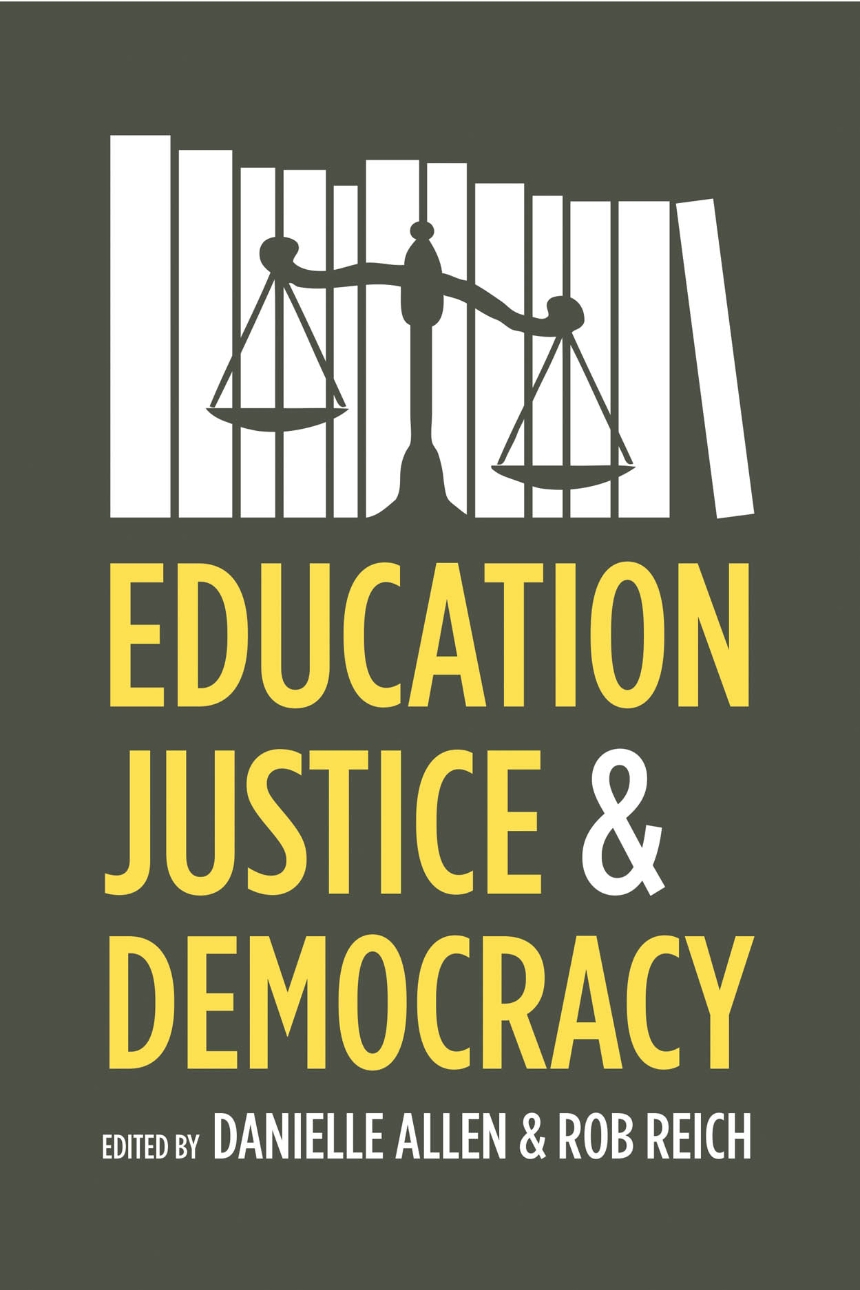Education, Justice, and Democracy
Education is a contested topic, and not just politically. For years scholars have approached it from two different points of view: one empirical, focused on explanations for student and school success and failure, and the other philosophical, focused on education’s value and purpose within the larger society. Rarely have these separate approaches been brought into the same conversation. Education, Justice, and Democracy does just that, offering an intensive discussion by highly respected scholars across empirical and philosophical disciplines.
The contributors explore how the institutions and practices of education can support democracy, by creating the conditions for equal citizenship and egalitarian empowerment, and how they can advance justice, by securing social mobility and cultivating the talents and interests of every individual. Then the authors evaluate constraints on achieving the goals of democracy and justice in the educational arena and identify strategies that we can employ to work through or around those constraints. More than a thorough compendium on a timely and contested topic, Education, Justice, and Democracy exhibits an entirely new, more deeply composed way of thinking about education as a whole and its importance to a good society.
368 pages | 6 line drawings, 2 tables | 6 x 9 | © 2013
Education: Education--General Studies, Philosophy of Education
Political Science: Political and Social Theory
Sociology: Individual, State and Society
Reviews
Table of Contents
Acknowledgments
Introduction
Danielle Allen and Rob Reich
Danielle Allen and Rob Reich
Part 1. Ideals
Chapter 1. The Challenges of Measuring School Quality: Implications for Educational Equity
Helen Ladd and Susanna Loeb
Chapter 2. Equality, Adequacy, and K–12 Education
Rob Reich
Rob Reich
Chapter 3. Learning to Be Equal: Just Schools as Schools of Justice
Anthony Simon Laden
Anthony Simon Laden
Chapter 4. Education for Shared Fate Citizenship
Sigal Ben-Porath
Sigal Ben-Porath
Part 2. Constraints
Chapter 5. Can Members of Marginalized Groups Remain Invested in Schooling? An Assessment from the United States and the United Kingdom
Angel L. Harris
Chapter 6. Conferring Disadvantage: Immigration, Schools, and the Family
Carola Suárez-Orozco and Marcelo M. Suárez-Orozco
Carola Suárez-Orozco and Marcelo M. Suárez-Orozco
Chapter 7. The Myth of Intelligence: Smartness Isn’t Like Height
Gregory M. Walton
Gregory M. Walton
Chapter 8. Racial Segregation and Black Student Achievement
Richard Rothstein
Richard Rothstein
Part 3. Strategies
Chapter 9. Family Values and School Policy: Shaping Values and Conferring Advantage
Harry Brighouse and Adam Swift
Chapter 10. The Federal Role in Educational Equity: The Two Narratives of School Reform and the Debate over Accountability
Patrick McGuinn
Patrick McGuinn
Chapter 11. Reading Thurgood Marshall as a Liberal Democratic Theorist: Race, School Finance, and the Courts
Anna Marie Smith
Anna Marie Smith
Chapter 12. Sharing Knowledge, Practicing Democracy: A Vision for the Twenty-First-Century University
Seth Moglen
Seth Moglen
Notes
References
Contributors
Index
